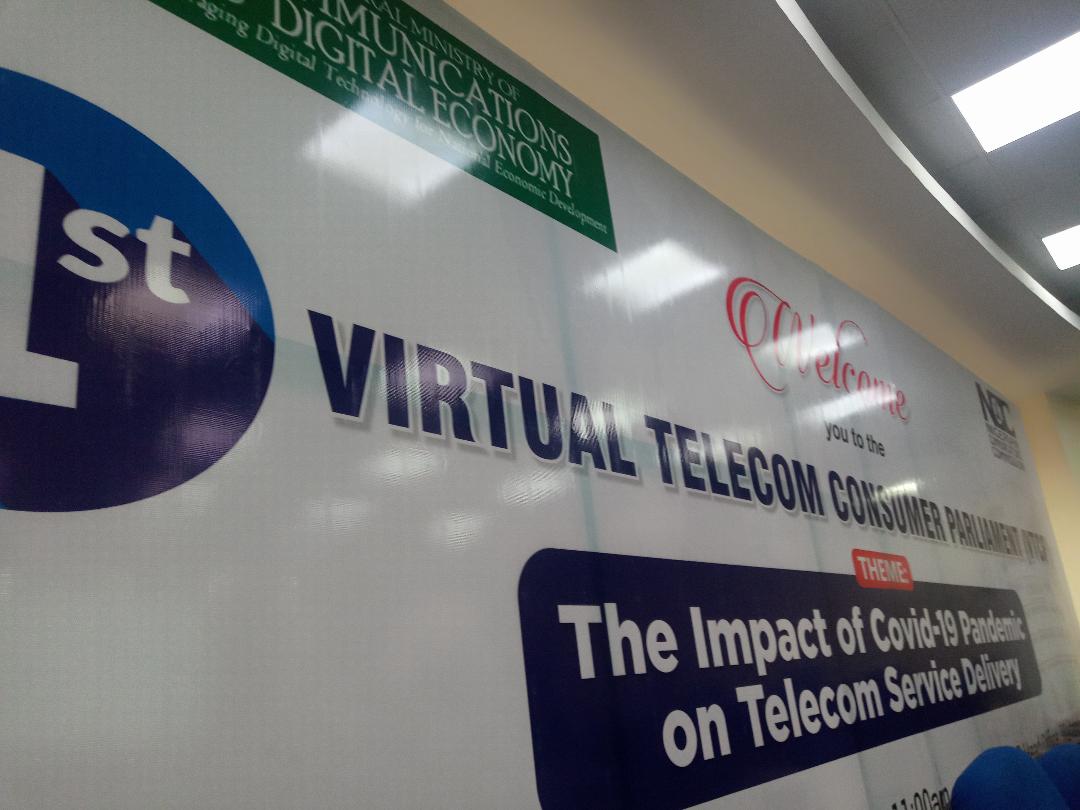The Nigerian Communications Commission, NCC, on Friday revealed some of the critical steps it took to ensure improvement in service delivery by network operators in the face of the pressure occasioned by the effect of COVID-19.
The Executive Vice Chairman of NCC, Professor Umar Danbatta, made the revelation while declaring open the first edition of the Virtual Telecoms Consumer Parliament, VTCP, held at the NCC head office, in Abuja.
At the event with the theme, “Impact of Covid-19 on Telecoms Service Delivery,” Danbatta said the need to take the critical steps became necessary in view of the crucial role played by the internet in keeping critical infrastructure and resources connected and available.
Some of the critical steps which the NCC boss said were held in conjunction with the Ministry of Communication and Digital Economy, included the development of e-platforms where all licensing requests, consumer complaints and Base Transceiver Station (BTS) investigation requests were channeled.
That, according to him, was in addition to the provision of designated e-mail addresses to be used for such requests throughout the pandemic period.
He added that commission also approved and encouraged resource sharing among network operators.
The shared resources include fibre optics cables and ancillary resources, with the aim of ensuring that there was no destruction to service provision in the event of fibre cut and related incidence.
Danbatta revealed too that the commission also secured Right of Passage (RoP) for all telecommunications officials and staff for easy movement during the lockdown and movement restriction in order to be able to service their base stations and keep them active to provide services for telecom consumers who increasingly rely on their networks to work from home.
He said in the same vein, the commission also secured Right of Passage for suppliers that were involved in supplies of fuels, food and other essential services to telecom operators during total lockdown.
Danbatta explained too that with the intervention of the Minister of Communications and Digital Economy, Dr. Isa Ali Ibrahim Pantami, state governors were able to align their Right of Way charges to N145 as approved by the Federal Economic Council (FEC).
Other state governors pegged their RoW charges below the N145 set by the FEC while some state governors had totally waived RoW charges in their states, the NCC boss added.
“All these are aimed at encouraging network operators to deploy telecoms/broadband infrastructure faster in their states with a view to deepening digital access. As COVID-19 evolves, a new world order where more activities are conducted online and robust broadband access is central is emerging. In effect, most of the state governors have appreciated the centrality of robust broadband infrastructure as work-from-home measures by government persists,” he said.
Danbatta said the commission had become hopeful that with the reduction in RoW, which he believed would automatically result in reduction in Capital Expenditure (CAPEX) by the network operators, telecom companies would sooner or later reciprocate the gesture by making their services in particular, data services more affordable to Nigerians.
He recalled that one of the issues presented to the minister when he assumed office was the need to strengthen telecom infrastructure protection.
He said the minister acted on the issue speedily by obtaining presidential approval directing security agencies to protect ICT and telecom facilities as critical national assets.
“It is pleasing that this action helped to safeguard telecom infrastructure for the greater role telecom has to play with the outbreak of COVID-19 pandemic,” he said.














